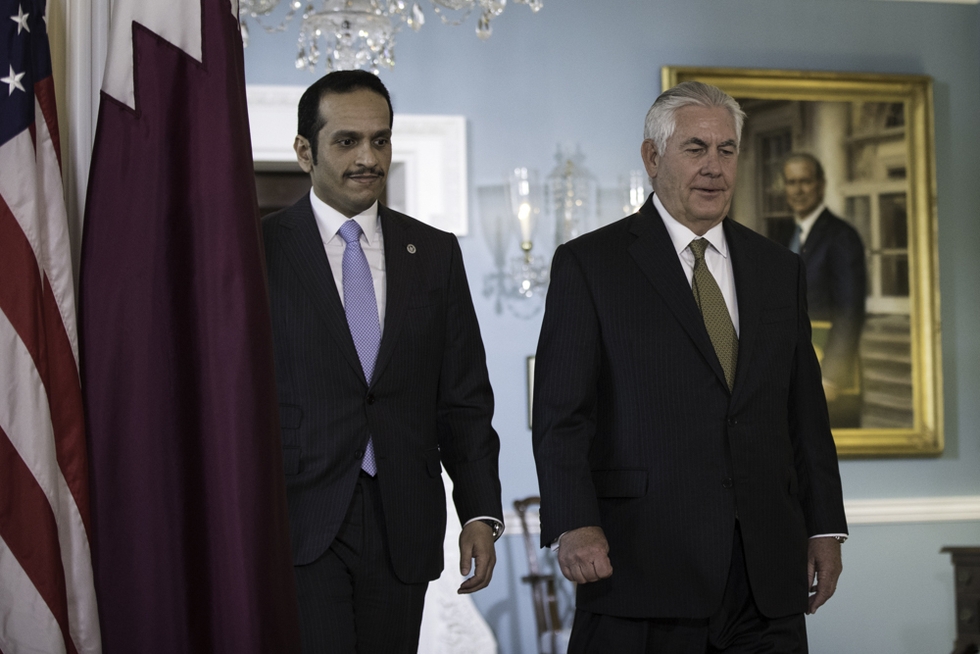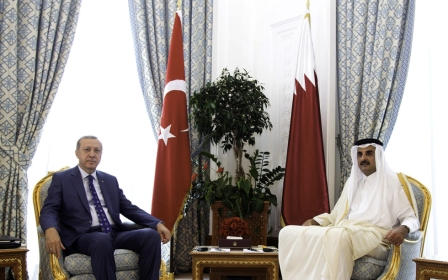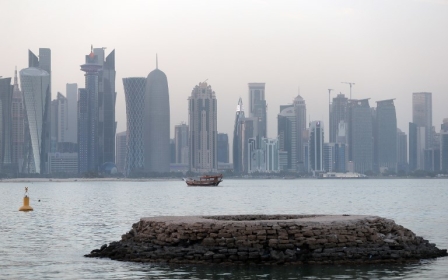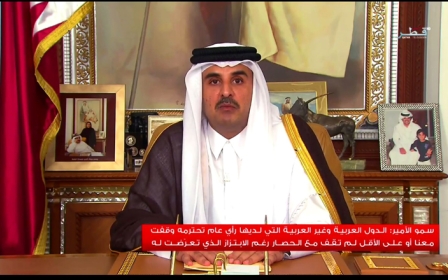Qatar refuses to 'outsource foreign policy' in Gulf crisis

Qatar refuses to bow to Saudi-led demands to "outsource" its foreign policy to resolve the Gulf crisis, its government spokesman told AFP in an interview.
Sheikh Saif bin Ahmed al-Thani, who holds ministerial rank, accused Doha's adversaries in the crisis – Saudi Arabia, the United Arab Emirates (UAE), Bahrain and Egypt – of meddling in Qatar's internal affairs.
"What's behind this crisis, of course, is Qatari sovereignty and independence to put it very simply. It is about... outsourcing our foreign policy so that decisions are not made in Qatar, and that is something that will never be acceptable," he said.
Sheikh Saif said the Saudi-led bloc had laid down a new "ultimatum" on Tuesday by publishing a list of individuals and "terrorist" entities allegedly linked to Doha.
The blacklist contained nine organisations and nine individuals the Saudi-led bloc accuses of supporting terrorists with finances from Qatar.
This "list, it's still an ultimatum, it's still something that is stalling resolving the crisis", the official said.
However, "we have said it from the start, we are open to dialogue, we are open to negotiating... The first step should be lifting the illegal blockade."
Yemeni and Libyan entities accused of terror links
Out of 18 entities included in the blacklist, six were based in Yemen, where a Saudi-led coalition is battling the Iranian-backed Houthi rebels.
The Saudi-led bloc accuses the entities, three charities and three Yemeni citizens, of supporting al-Qaeda with "significant funding from Qatari charities".
Eight of the blacklisted entities are based in Libya, where Qatar and the Saudi bloc have backed opposing sides in the country’s civil war.
In the region's worst diplomatic crisis in years, Riyadh and allies have been boycotting Doha since 5 June.
They have sealed the emirate's only land border, ordered its citizens to leave, and closed their airspace and waters to Qatari flights and shipping.
They are demanding that Qatar break its longstanding ties with the Muslim Brotherhood, blacklisted as a "terror group" by the four governments although not by the international community.
They also want Doha to close broadcasting giant Al Jazeera and a Turkish military base, and to fall in line with Saudi-led policy in the region, particularly towards Iran.
Sheikh Saif insisted that "this crisis was again triggered by them, not by us".
Qatar was prepared to discuss "anything openly" as long as it does not impinge on the country's sovereignty and independence, he said.
New MEE newsletter: Jerusalem Dispatch
Sign up to get the latest insights and analysis on Israel-Palestine, alongside Turkey Unpacked and other MEE newsletters
Middle East Eye delivers independent and unrivalled coverage and analysis of the Middle East, North Africa and beyond. To learn more about republishing this content and the associated fees, please fill out this form. More about MEE can be found here.




